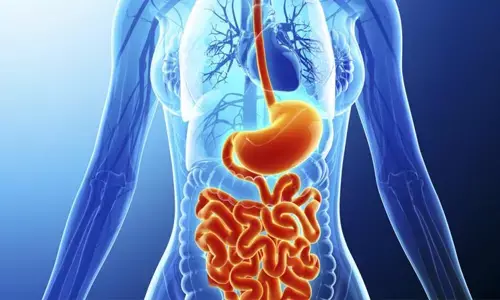- Home
- Medical news & Guidelines
- Anesthesiology
- Cardiology and CTVS
- Critical Care
- Dentistry
- Dermatology
- Diabetes and Endocrinology
- ENT
- Gastroenterology
- Medicine
- Nephrology
- Neurology
- Obstretics-Gynaecology
- Oncology
- Ophthalmology
- Orthopaedics
- Pediatrics-Neonatology
- Psychiatry
- Pulmonology
- Radiology
- Surgery
- Urology
- Laboratory Medicine
- Diet
- Nursing
- Paramedical
- Physiotherapy
- Health news
- Fact Check
- Bone Health Fact Check
- Brain Health Fact Check
- Cancer Related Fact Check
- Child Care Fact Check
- Dental and oral health fact check
- Diabetes and metabolic health fact check
- Diet and Nutrition Fact Check
- Eye and ENT Care Fact Check
- Fitness fact check
- Gut health fact check
- Heart health fact check
- Kidney health fact check
- Medical education fact check
- Men's health fact check
- Respiratory fact check
- Skin and hair care fact check
- Vaccine and Immunization fact check
- Women's health fact check
- AYUSH
- State News
- Andaman and Nicobar Islands
- Andhra Pradesh
- Arunachal Pradesh
- Assam
- Bihar
- Chandigarh
- Chattisgarh
- Dadra and Nagar Haveli
- Daman and Diu
- Delhi
- Goa
- Gujarat
- Haryana
- Himachal Pradesh
- Jammu & Kashmir
- Jharkhand
- Karnataka
- Kerala
- Ladakh
- Lakshadweep
- Madhya Pradesh
- Maharashtra
- Manipur
- Meghalaya
- Mizoram
- Nagaland
- Odisha
- Puducherry
- Punjab
- Rajasthan
- Sikkim
- Tamil Nadu
- Telangana
- Tripura
- Uttar Pradesh
- Uttrakhand
- West Bengal
- Medical Education
- Industry
PPIs administered with NOACs for AF decrease risk of upper GI bleed

Co administration of Proton pump inhibitors reduces upper GI bleeds in patients with Atrial fibrillation on Non-Vitamin K antagonist oral anticoagulants, finds a new study published in the Journal of British Cardiovascular Society. This suggests that PPI cotreatment should be explored, particularly in older patients, patients with a HAS-BLED score of 3, and/or patients on concurrent antiplatelet therapy.
Therapy with Non-Vitamin K antagonist oral anticoagulants (NOACs) increased the lncidence of upper gastrointestinal bleeding (UGIB) substantially more than warfarin. PPIs (proton pump inhibitors) decrease stomach acid production and help to avoid ulcer recurrence. Concurrent PPI therapy in NOAC-treated individuals with Atrial Fibrillation (AF) is linked with a lower incidence of severe UGIB.
The goal of this research was to see if using a proton pump inhibitor (PPI) decreases the risk of upper gastrointestinal bleeding (UGIB) in patients with atrial fibrillation (AF) who were using non-vitamin K antagonist oral anticoagulants (NOACs).
From April 2011 to July 2018, this study employed a similar protocol and data model approach to perform a cohort study involving 1,64,290 patients with AF who were started on a NOAC in Stockholm, Denmark, and the Netherlands. A UGIB identified in a secondary care inpatient setting was the result of interest. incidence rate ratios (IRRs) was calculated by comparing PPI use to no PPI use periods using an inverse probability weighted (IPW) Poisson regression.
Major findings of the study
• PPI usage was linked with a 25% lower incidence of UGIB during NOAC treatment in this large multicountry population-based research of 162 333 NOAC-treated patients with AF.
• The protective impact was most in high-risk patients, defined as those over the age of 75, with a HAS-BLED score of 3 or above, and/or on concurrent antiplatelet treatment.
• Surprisingly, the protective effect of PPIs was only shown in those given apixaban or dabigatran, not in those given rivaroxaban.
In conclusion, the research team said "there was a link between PPI usage and a reduced incidence of severe UGIB in an unselected NOAC-treated group with AF that was consistent across three distinct Western European hospital settings. Based on these findings and the findings of previous trials, we believe PPIs can be used to lower the risk of UGIBs in NOAC-treated patients with AF who are at high risk of bleeding."
Source
Komen J, Pottegård A, Hjemdahl P, et al Non-Vitamin K antagonist oral anticoagulants, proton pump inhibitors and gastrointestinal bleeds. Heart Published Online First: 02 August 2021. doi: 10.1136/heartjnl-2021-319332
Medical Dialogues consists of a team of passionate medical/scientific writers, led by doctors and healthcare researchers. Our team efforts to bring you updated and timely news about the important happenings of the medical and healthcare sector. Our editorial team can be reached at editorial@medicaldialogues.in.
Dr Kamal Kant Kohli-MBBS, DTCD- a chest specialist with more than 30 years of practice and a flair for writing clinical articles, Dr Kamal Kant Kohli joined Medical Dialogues as a Chief Editor of Medical News. Besides writing articles, as an editor, he proofreads and verifies all the medical content published on Medical Dialogues including those coming from journals, studies,medical conferences,guidelines etc. Email: drkohli@medicaldialogues.in. Contact no. 011-43720751


